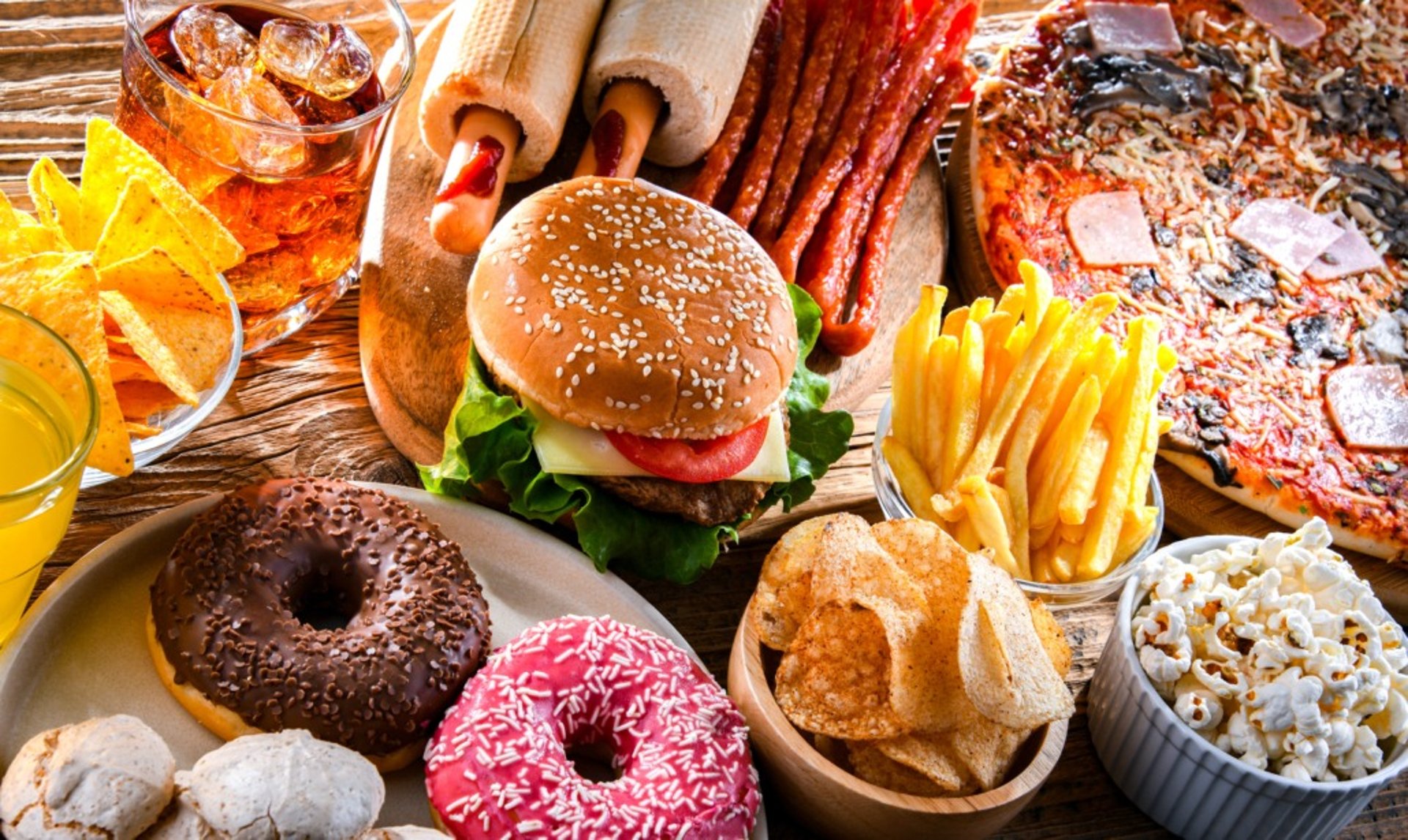
8 Foods to Avoid Before Bedtime for a Better Night’s Sleep
Getting quality sleep is crucial for overall health and well-being. What you eat before bedtime can significantly impact your sleep quality. This comprehensive guide explores foods that should be avoided before sleep and provides science-backed alternatives for better rest.


As the sun dips below the horizon and the world begins to unwind, many of us are seeking that elusive cozy embrace of a good night’s sleep. Yet, surprisingly, what we consume in those final hours before hitting the pillow can either be a soothing lullaby or a jarring alarm clock. While there are foods that promote better sleep—think warm milk and bananas—there are also culprits lurking in our kitchens that could sabotage our nighttime serenity.
Imagine tossing and turning all night, staring at the ceiling while your mind races with thoughts of tomorrow’s to-do list. The culprit? It may very well be what you ate for dinner—or worse yet, that late-night snack you deemed harmless! In this article, we'll explore eight specific foods to avoid before bedtime and why steering clear of them could be your ticket to blissful slumber. Get ready to transform your evenings from restless tosses into peaceful dreams by making smarter choices on your plate!
Understanding the Sleep-Diet Connection
When it comes to achieving optimal health, understanding the sleep-diet connection is crucial. The importance of sleep cannot be overstated; it's a fundamental pillar that supports our overall well-being. Yet, many overlook how significantly our dietary choices can affect sleep quality.
The effects of diet on sleep are profound and multifaceted. Consuming a balanced diet rich in whole foods can enhance your ability to fall asleep faster and enjoy deeper, more restorative rest. Foods high in tryptophan, magnesium, and melatonin—such as turkey, almonds, and cherries—are particularly beneficial for promoting better sleep quality.
Conversely, diets heavy in processed foods and sugar can disrupt your natural sleep patterns. These substances may cause spikes in blood sugar levels that lead to restless nights or frequent awakenings. Recognizing the food and sleep connection empowers us to make informed dietary choices that support not just our physical health but also our mental clarity and emotional balance.
By prioritizing both nutrition and rest, we set a strong foundation for a healthier lifestyle. It's time to embrace the synergy between what we eat and how well we sleep to unlock the full potential of our daily lives.
8 Foods That Disrupt Sleep - Foods To Avoid Before Bedtime
1. Caffeinated Foods and Beverages
Caffeine is a powerful stimulant that can have a significant impact on your body's natural sleep cycle. Did you know that caffeine can remain active in your system for up to 8 hours? This means that consuming caffeinated foods and beverages even in the early afternoon could potentially interfere with your ability to fall asleep at night.
Coffee and energy drinks are the most common sources of caffeine, often consumed to boost alertness and energy levels. However, it's crucial to be mindful of when you're indulging in these beverages, as their stimulating effects could linger longer than anticipated, blocking sleep-inducing chemicals in your brain.
But it's not just coffee lovers who need to be cautious; dark chocolate is another sneaky source of caffeine. While it might seem like an innocent treat or dessert option, its caffeine content can contribute to sleepless nights if consumed too late in the day.
Tea enthusiasts should also take note—both black and green teas contain enough caffeine to potentially disrupt your sleep if enjoyed too close to bedtime. Although they offer numerous health benefits, timing is key when it comes to enjoying these soothing brews without compromising rest.
Even soft drinks aren't exempt from this list. Many popular sodas contain varying amounts of caffeine that can add up throughout the day, especially if you're reaching for them as a refreshing pick-me-up during afternoon slumps.
By becoming more aware of how long caffeine stays active in your system and its various sources, you can make informed choices about when and what caffeinated products you consume. This awareness will help ensure you're not inadvertently sacrificing quality sleep for short-term alertness.
2. High-Fat Foods
When it comes to dietary choices, understanding the impact of high-fat foods on your digestion is crucial. Fatty foods, while often delicious, can take significantly longer to digest compared to other food types. This slow digestion process can lead to discomfort, especially when you find yourself lying down after a meal.
Take fried foods, for instance. These crispy delights are typically cooked in oil or butter, making them high in fat content. While they may satisfy your taste buds momentarily, they often leave you feeling sluggish and uncomfortable as your body works overtime to break them down.
Similarly, fatty meats such as bacon or certain cuts of beef are notorious for their rich flavor and dense texture. While they provide a hearty meal experience, these meats can linger in your digestive system longer than you'd like. This extended digestion period may lead to feelings of fullness and bloating that aren't ideal if you're planning on relaxing afterward.
Heavy dairy products also fall into this category of slow-digesting foods. Creamy cheeses and whole milk might be staples in many diets due to their comforting qualities and nutritional benefits; however, their high-fat content means they require more time for complete digestion.
Considering these factors is essential for anyone looking to maintain comfort and well-being after meals. By moderating the intake of high-fat foods like fried dishes, fatty meats, and heavy dairy products—especially before lying down—you can help prevent digestive discomfort and promote a more balanced diet overall.
3. Spicy Foods
If you're someone who loves to indulge in spicy foods, you might want to reconsider your dinner choices, especially if you value a good night's sleep. While hot peppers, curry dishes, and spicy sauces can tantalize your taste buds with their fiery flavors, they can also wreak havoc on your restful slumber.
Spicy foods have the potential to raise your body temperature significantly. This increase in heat can make it difficult for your body to cool down enough to enter a deep sleep state. Additionally, the consumption of these fiery delights often leads to acid reflux—a condition where stomach acid flows back into the esophagus—causing discomfort and heartburn that can keep you tossing and turning all night.
Imagine trying to drift off into peaceful dreams only to be jolted awake by an uncomfortable burning sensation in your chest or an unrelenting feeling of warmth that makes it impossible to get cozy under the covers. By opting for milder meals in the evening, you can avoid these disruptions and enjoy more restorative sleep.
So next time you're planning a meal before bedtime, consider giving those hot peppers and spicy sauces a pass. Your body—and your sleep schedule—will thank you for it!
4. Acidic Foods
When it comes to maintaining digestive health, understanding the impact of acidic foods is crucial. These foods can trigger heartburn and digestive discomfort, making it essential to recognize common culprits in your diet.
Citrus fruits, while packed with beneficial vitamins and antioxidants, are notorious for their high acidity levels. Oranges, lemons, and grapefruits can irritate the esophagus lining, leading to that familiar burning sensation known as heartburn. If you frequently experience digestive discomfort after consuming citrus fruits, it might be time to moderate your intake or explore less acidic alternatives.
Tomato-based foods are another common source of acidity that can wreak havoc on sensitive stomachs. Whether it's a rich marinara sauce or a hearty tomato soup, these dishes often lead to increased acid production in the stomach. For those prone to heartburn or acid reflux, reducing consumption of tomato-based meals could significantly enhance comfort and digestion.
Lastly, vinegar-based foods such as pickles and salad dressings may add zest to your meals but at a cost. The acetic acid in vinegar is a known trigger for heartburn episodes. Opting for low-acid dressing options or limiting pickled snacks might be wise choices for individuals aiming to minimize digestive distress.
By being mindful of these acidic food triggers—citrus fruits, tomato-based dishes, and vinegar-laden items—you can take proactive steps towards achieving better digestive health and overall well-being.
5. High-Sugar Foods
When it comes to maintaining a healthy lifestyle, one of the most overlooked factors is the impact of high-sugar foods on our sleep patterns. Consuming excessive sugar can cause blood glucose fluctuations that disrupt sleep, leading to restless nights and groggy mornings. Let's take a closer look at some common culprits that might be sabotaging your slumber.
Candies and desserts are often packed with refined sugars, which cause rapid spikes in blood glucose levels. This sudden surge is followed by an inevitable crash, which can leave you feeling jittery and restless when it's time to hit the hay. While indulging in a sweet treat occasionally is fine, making it a habit could be costing you precious hours of quality sleep.
Sweetened cereals might seem like a quick and easy breakfast option or even a late-night snack, but many are loaded with added sugars. These seemingly innocent bowls can set off a chain reaction of energy highs and lows throughout your day—and night—making it difficult for your body to wind down when bedtime rolls around.
Sugary drinks are another major contributor to disrupted sleep patterns. From sodas to fruit juices laden with extra sugar, these beverages can keep your blood glucose levels dancing all night long. Opting for water or herbal tea in the evening not only supports better hydration but also promotes more restful sleep.
By becoming more mindful of our sugar intake from candies, sweetened cereals, and sugary drinks, we can take significant steps towards improving our overall health—and enjoying more rejuvenating nights' rest as well.
6. Alcohol
When it comes to unwinding after a long day, many people reach for a glass of wine, a cold beer, or their favorite spirits. While alcohol might make you drowsy initially and help you drift off to sleep faster, it's important to understand the hidden effects it has on your sleep cycle and overall hydration levels.
Initially, alcohol acts as a sedative, which is why that glass of wine or pint of beer can make you feel relaxed and ready for bed. However, the reality is that alcohol disrupts REM sleep—the deep stage of sleep crucial for cognitive function and memory consolidation. Without sufficient REM sleep, you may wake up feeling groggy and less refreshed than if you'd skipped the nightcap altogether.
Moreover, alcohol acts as a diuretic. This means that while you're enjoying those spirits neat or on the rocks, your body is losing fluids at an accelerated rate. Dehydration not only affects your physical well-being but can also exacerbate feelings of fatigue upon waking.
So next time you're considering reaching for that drink before bed, remember: while it might seem like a quick fix for relaxation and drowsiness, in reality, it could be doing more harm than good to your nightly rest and hydration status. Consider alternatives like herbal teas or simply winding down with a good book—your body will thank you in the morning!
7. High-Protein Foods
When it comes to fueling your body and supporting a healthy lifestyle, high-protein foods are an essential component of any balanced diet. Not only do they help in building and repairing tissues, but protein-rich foods also require significant energy to digest, which can boost your metabolism and aid in weight management.
Take red meat, for instance. It's a powerhouse of protein that provides essential nutrients like iron and vitamin B12, crucial for maintaining energy levels and overall health. Incorporating moderate portions of lean cuts into your meals can significantly contribute to your daily protein intake.
Similarly, large portions of poultry such as chicken or turkey are excellent sources of high-quality protein. They offer versatility in cooking while keeping saturated fat content lower than some other meats. Whether grilled, baked, or sautéed, poultry can be a delicious way to meet your protein needs without compromising on taste.
For those with busy lifestyles or specific dietary goals, high-protein supplements can be a convenient option. These supplements ensure you get the necessary amount of protein even on the go, making it easier to stick to your nutritional plans without missing out on vital nutrients.
Incorporating these high-protein options into your diet not only supports muscle growth and repair but also keeps you feeling fuller for longer periods—helping you maintain a healthy weight effortlessly. So why not make these power-packed foods a staple in your dietary regimen? Your body will thank you for it!
8. Water-Rich Foods
When it comes to maintaining hydration, foods with high water content are often hailed as heroes. However, indulging in these water-rich delights too close to bedtime might lead to those pesky nighttime bathroom visits that disrupt your precious slumber. Let's delve into some of the most hydrating foods and understand why timing is everything.
Take watermelon, for instance. This juicy fruit is a summertime favorite, boasting over 90% water content. While it's perfect for quenching thirst on a hot day, consuming it late in the evening could mean an unwelcome trip to the bathroom during the night.
Similarly, cucumbers are another hydrating powerhouse with their crisp texture and refreshing taste. They make an excellent addition to salads or as a snack throughout the day. However, like watermelon, their high water content can contribute to increased urination if eaten too close to bedtime.
Celery rounds out our list of watery wonders. Known for its crunchy bite and low-calorie count, celery is packed with water and fiber—great for digestion but not ideal when you’re trying to get uninterrupted sleep.
Incorporating these foods into your diet offers numerous health benefits; just be mindful of when you consume them. By enjoying watermelon, cucumber, and celery earlier in the day rather than at night, you can enjoy their hydrating properties without compromising your sleep quality.
Better Alternatives for Evening Snacks
When the evening rolls around and that familiar craving hits, it's tempting to reach for something quick and satisfying. However, if you need a light snack before bed, consider these sleep-friendly options that not only satisfy your hunger but also promote better rest.
Start with a small banana paired with a few almonds. This combination is rich in magnesium and potassium, which help relax your muscles and prepare your body for sleep. Plus, the natural sweetness of bananas makes them a delightful treat.
For something more substantial, try a turkey wrap with whole grain bread. Turkey contains tryptophan, an amino acid known to enhance sleep quality by increasing melatonin production. The fiber-rich whole grain bread will keep you satiated without feeling too full.
If you're in the mood for something creamy and sweet, Greek yogurt with honey is an excellent choice. Greek yogurt provides protein while honey adds just enough sweetness to satisfy your taste buds without overloading on sugar.
To wind down completely, sip on some chamomile tea. Known for its calming properties, chamomile tea can ease anxiety and help you drift into slumber naturally.
Finally, consider tart cherry juice as an evening refreshment. It's one of the few natural sources of melatonin—a hormone crucial for regulating sleep cycles—making it an ideal choice to cap off your day.
By opting for these alternatives instead of traditional snacks laden with sugar or caffeine, you'll not only curb those late-night cravings but also set yourself up for a restful night’s sleep.
Expert Tips for Better Sleep
Achieving a restful night's sleep is often more about what happens before you hit the pillow than the actual act of sleeping. Implementing a few expert-backed strategies can make a world of difference in your nightly rest. One crucial tip is to stop eating 2-3 hours before bedtime. This allows your body time to digest and can prevent discomfort that might keep you awake.
Opt for light and balanced evening meals to avoid overloading your system with heavy, rich foods that can disrupt sleep patterns. Think lean proteins, whole grains, and plenty of vegetables—these choices provide essential nutrients without causing digestive distress.
Hydration plays an essential role in overall health, including sleep quality. Ensure you're staying hydrated throughout the day but try to limit fluid intake close to bedtime to minimize nighttime trips to the bathroom.
Finally, practice mindful eating by paying attention to hunger cues and savoring each bite. This not only aids digestion but also helps establish a calming routine before bed, signaling your body that it's time to wind down.
By incorporating these expert tips into your daily routine, you pave the way for better sleep—and ultimately—a healthier life.
Frequently Asked Questions (FAQs)
Q: How long before bed should I stop eating?
A: Experts recommend stopping food consumption 2-3 hours before bedtime to allow proper digestion and minimize sleep disruption.
Q: What if I get hungry right before bed?
A: If you must eat, choose a small, light snack like a banana or a few nuts. Avoid large meals or heavy foods.
Q: Does the timing of dinner affect sleep quality?
A: Yes, eating too close to bedtime can affect both sleep quality and duration. Earlier dinners generally promote better sleep.
Q: Can certain foods help me sleep better?
A: Yes, foods rich in tryptophan, magnesium, and complex carbohydrates can promote better sleep. Examples include turkey, bananas, and whole grains.
Q: How does caffeine affect sleep?
A: Caffeine blocks adenosine receptors in the brain, which are responsible for making you feel sleepy. Its effects can last up to 8 hours.
Q: What foods cause insomnia?
A: Foods that commonly cause insomnia include those high in caffeine (coffee, chocolate, tea), spicy foods, high-sugar treats, alcoholic beverages, and acidic foods. These can disrupt sleep by causing digestive issues, increasing alertness, or affecting your body's natural sleep-wake cycle.
Q: Which foods disturb sleep patterns?
A: Several foods can disturb sleep patterns, including:
- Caffeinated beverages and foods
- High-fat processed foods
- Spicy dishes
- Acidic foods
- High-sugar desserts and snacks
- Large portions of protein-rich foods
These items can cause indigestion, increase body temperature, or stimulate brain activity when you should be winding down.
Q: How does eating late affect sleep?
A: Late-night eating can negatively impact sleep in several ways:
- Raises body temperature during digestion
- Increases risk of acid reflux
- Disrupts the natural release of sleep hormones
- Can cause blood sugar fluctuations
- May lead to uncomfortable fullness
For optimal sleep, it's best to finish eating well before bedtime.
Q: When should you stop eating before bed?
A: The general recommendation is to stop eating 2-3 hours before bedtime. This allows your body sufficient time to:
- Complete most of the digestion process
- Return to normal body temperature
- Properly produce sleep hormones
- Reduce the likelihood of acid reflux
Small, light snacks may be acceptable closer to bedtime if you're truly hungry.
Conclusion
Making mindful choices about what and when you eat before bedtime can significantly improve your sleep quality. By avoiding these 8 sleep-disrupting foods and following the recommended guidelines, you can create better conditions for restful sleep.
Remember that individual responses to foods can vary, so pay attention to how your body reacts to different evening meals and adjust accordingly. If sleep problems persist, consult a healthcare provider or sleep specialist for personalized advice.
Video
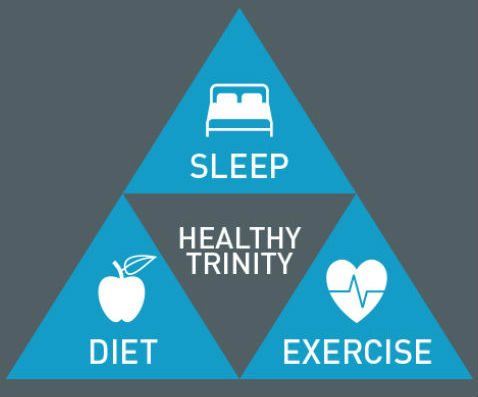

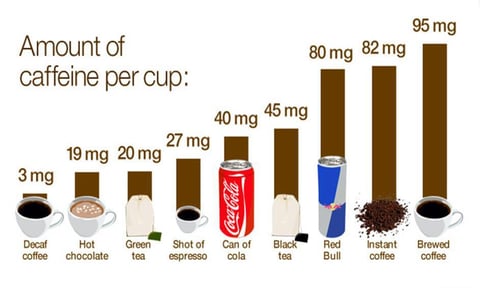

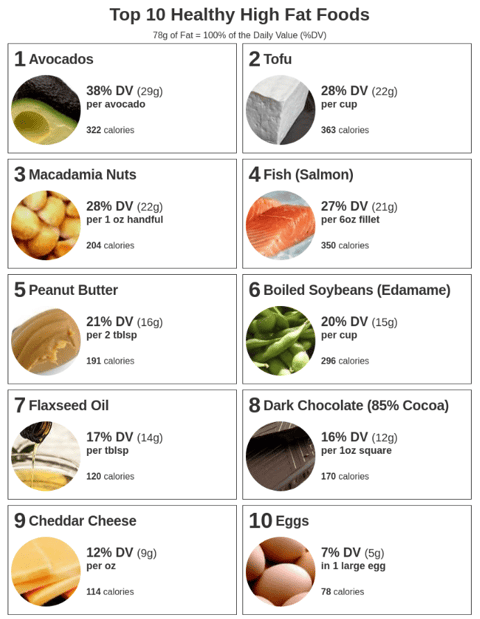





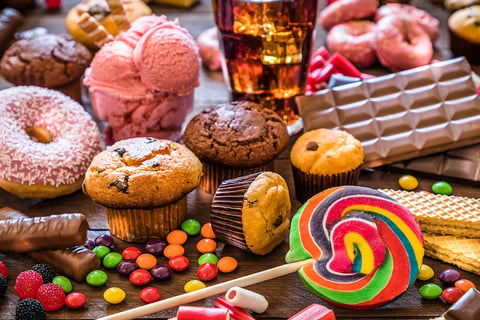



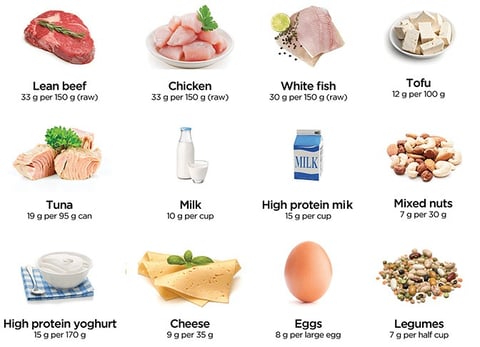

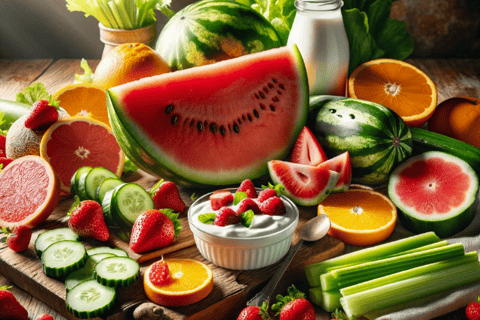

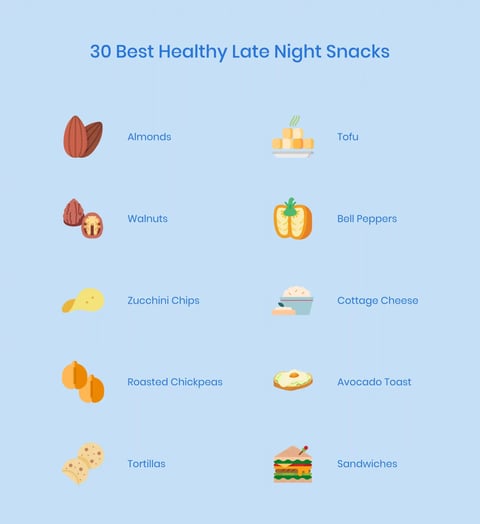



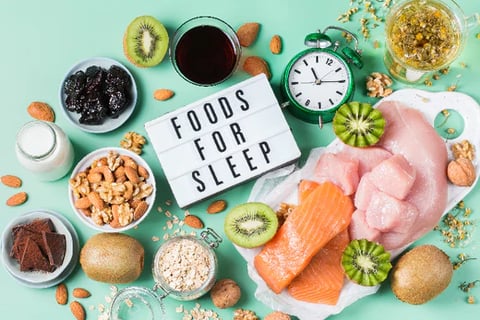

Discover tips for sleep, detox, and mindfulness.
© 2024. All rights reserved.
